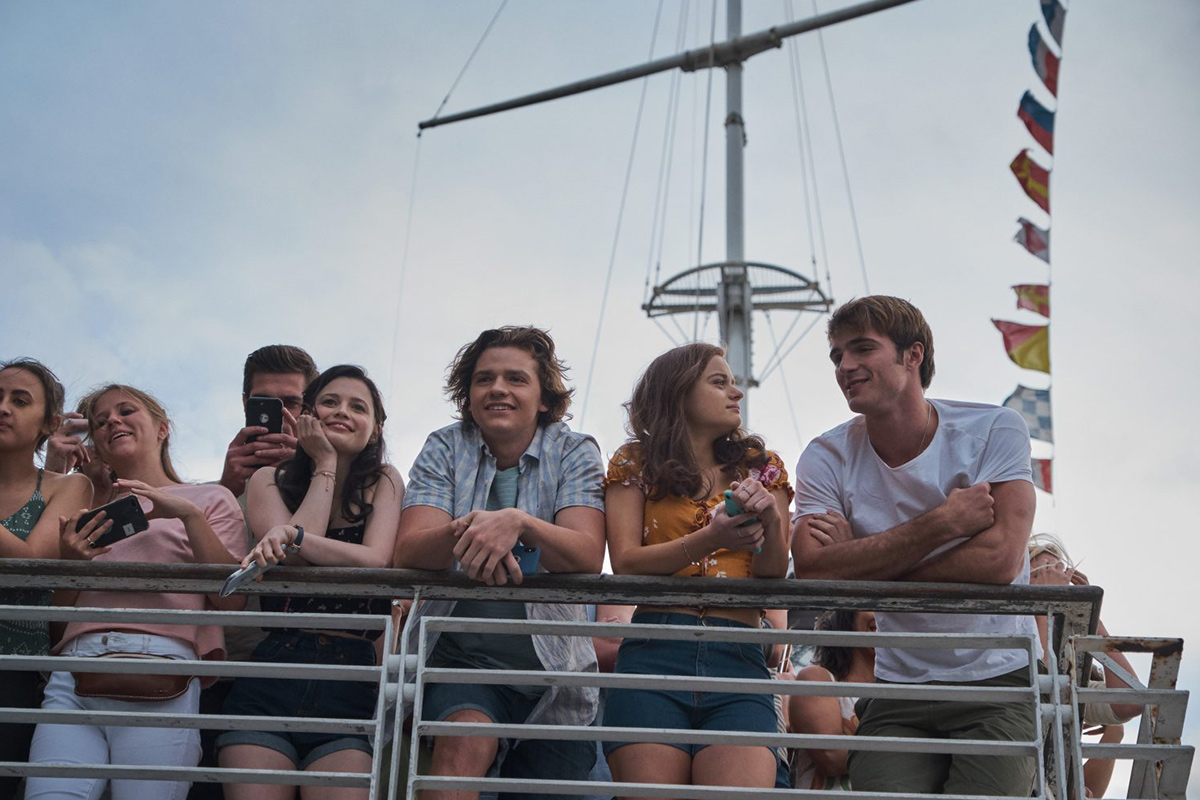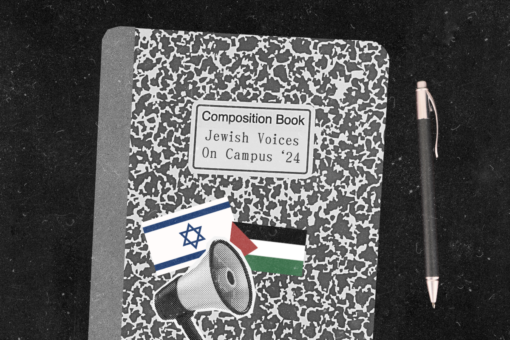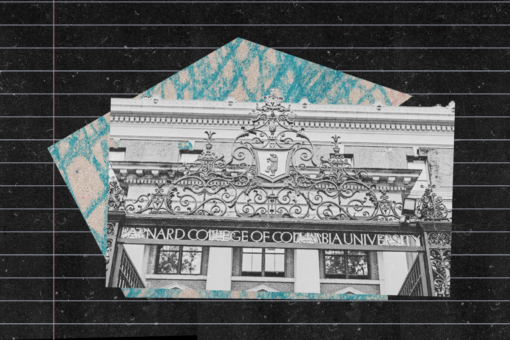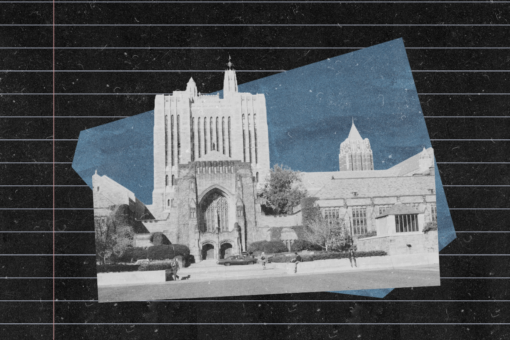Spoilers ahead for “The Kissing Booth 3”
Elul, the Jewish month leading up to the High Holidays, is all about spiritually preparing yourself for the renewal and redemption that Rosh Hashanah and Yom Kippur bring. How better to get in the Elul mood than by reflecting, meditating, studying Jewish spiritual texts, and watching… the “The Kissing Booth 3” on Netflix?
The “Kissing Booth” movies are a Netflix original franchise. And while they are known for their campy teenage fever-dream romance vibes, they are also synonymously known for the problematic relationships the main character, Elle (played by Jewish actress Joey King), has with both her best friend Lee (Joel Courtney) and his older brother, Noah (Jacob Elordi), with whom she falls in love.
An article could be devoted entirely to the many problematic aspects of their relationships with each other (and many have been), but I want to focus on the umbrella problem all the other issues fall under: The three of them are insanely codependent. Throughout the first two and a half movies, it’s a seemingly endless cycle of Elle chasing after one brother, only to hurt the fragile ego of the other jealous brother, and vice versa. I can hear Joey King’s distraught voice on loop in my brain, saying “Noah, wait!” and “Lee, please!” as she runs after them, on the brink of tears. Both brothers are weirdly possessive, controlling and jealous when it comes to Elle (it’s honestly super misogynistic and gross), and the responsibility (and blame) for their feelings and behavior always falls back on her.
However, the second half of the third movie just released did something that caught me by complete surprise: teshuvah.
Teshuvah is a Hebrew word that means a repentant turning back from something negative to what’s right and good. It’s a major (if not the major) theme of the High Holidays. By the end of “The Kissing Booth 3,” each of the main characters did their own teshuvah, in just the way their character needed to grow, redeeming itself against all odds. And it all feels incredibly Jewish. (Am I jumping to conclusions by declaring this cheesy teen romance-drama this year’s official High Holiday movie? I sure am!)
Each of the three movies has centered on Elle having to choose between Noah, her hot lover, and Lee, her best friend forever. (They even add in a third guy named Marco in “The Kissing Booth 2,” equally hopped up on testosterone, just to spice things up even more.) The decision always comes down to Elle: Who will she choose? Or, more accurately, who will she compromise herself for?
I watched the “The Kissing Booth 3” the evening after a therapy session, in which I had nonchalantly mentioned my last serious ex, and my therapist asked, “How did you two break up?” I explained to her what happened: My ex’s longest-ever relationship out of dozens of women had only been four months long — so I became determined to put everything I had into making sure that our relationship continued to last for as long as possible. I truly believed I could prove myself to be the chosen one who could change him. (Rookie mistake.) I was blissfully unaware at the time of my codependency/anxious attachment style; meanwhile, my ex had an avoidant attachment style. His avoidance and my codependency combined to create a cycle in which we both kept exacerbating each other’s issues: He would pull away, so I would come in harder, making him pull away even more, and so on. I was constantly putting in the majority of effort in the relationship, and it was exhausting and lonely.
When he got a job in another state, the plan was for us to temporarily do long-distance until I could move to be with him. However, it got more and more complicated… and it also became steadily more apparent to both of us that I would be uprooting my life for him, and that this just didn’t make sense. Ultimately, he withdrew emotionally and left the decision up to me: uproot my life and move or end our relationship. The entire weight of our relationship’s future was on my shoulders, and I got so stressed that I could no longer eat or sleep. In the end, we broke up. It was really hard to let go and extremely painful at the time, but also, I had an almost immediate sense of relief. I could finally breathe again. And I finally became aware that I had an unhealthy attachment style. This was the first step toward my total life revolution, as this one situation of turning back to myself created a ripple effect of renewal and redemption in my life.
Anyway, back to “The Kissing Booth 3.” (Here’s where the spoiler comes.) In the end, Elle finally makes a choice: She chooses herself. And it’s goddamn beautiful. I was simultaneously shocked and kvelling to see the protagonist (and movie itself) do such a 360. (It’s possible that Joey King had something to do with the turnaround; she became an executive producer on the second movie, and in the third, she was most involved in determining how things ended up for Elle.)
The idea that a three-movie series can redeem itself right at the very end and go from nauseating to almost inspiring (???) is exactly the message of the Jewish New Year and Day of Atonement: It doesn’t matter how long you’ve been committed to a lifestyle, habit, or attitude that doesn’t serve or fulfill you; you always have a chance before the final credits roll to turn it around. It might be easier said than done, and it might completely shock everyone around you, but you have that power and you can make that choice.
And just like Elle (and me, too), you have the power to choose yourself — even if that’s someone you don’t really know yet. A personal awakening, such as walking away from a toxic relationship or healing from codependency, is a personal Rosh Hashanah; it’s the beginning of a new chapter in your life, sometimes a new book all together. Turning back to yourself, breaking the bad habits, forgiving yourself for betraying yourself in the first place — that’s your personal Yom Kippur. In my experience, Rosh Hashanah is the rush; it’s new, scary but exhilarating, a fresh shiny beginning. Yom Kippur is the hard part. Just like those who choose to fast on Yom Kippur stay committed even as the hours and minutes drag tediously on and on, so too we have to commit to the work of making change and healing, even through the discomfort. (Side note: Please remember that fasting should only be done if it does not interfere with your health or safety, and there are plenty of other ways to observe the core tenets of the Yom Kippur without fasting.)
Elle is a young girl who turned back to herself and did the hard work that came with that, and it caused a ripple effect for everyone around her to do the same. So yes, “The Kissing Booth 3” is a High Holiday movie. Netflix and pomegranates, anyone?



